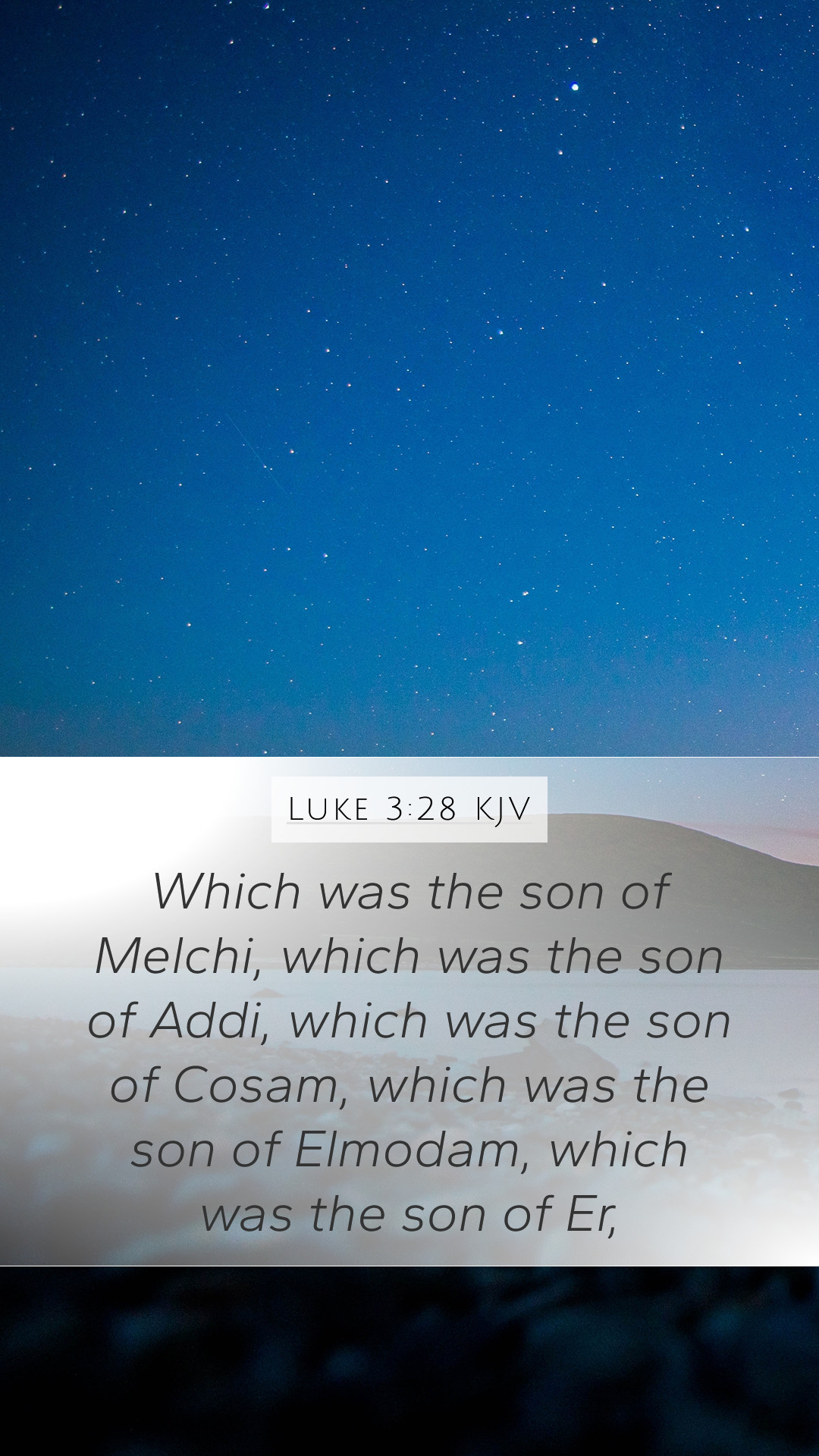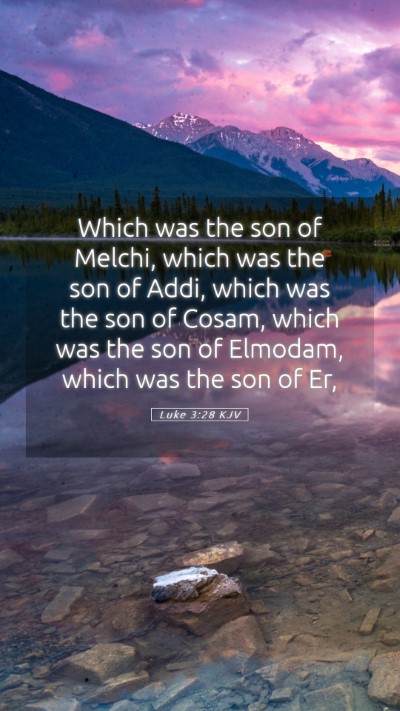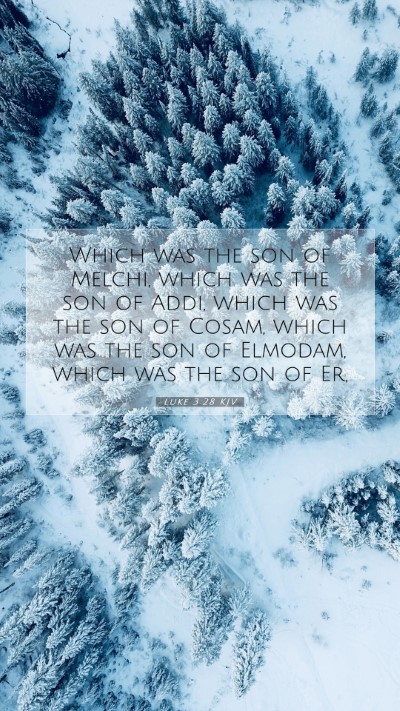Bible Verse Commentary: Luke 3:28
Understanding Luke 3:28:
Luke 3:28 states, "The son of Melchi, the son of Addi, the son of Cosam, the son of Elmadam, the son of Er." This verse presents a genealogical record, tracing the lineage of Jesus Christ. Such genealogies are crucial in establishing the fulfillment of Old Testament prophecies regarding the Messiah's lineage.
Importance of Genealogy in the Bible
Genealogy Highlights:
- Affirms the authenticity of Christ's human lineage.
- Connects Jesus to significant biblical figures.
- Provides a historical framework for understanding Jesus' mission.
Bible Verse Interpretations from Public Domain Commentaries
Matthew Henry’s Commentary:
Matthew Henry emphasizes the significance of genealogies throughout Scripture. He notes that tracing Jesus' lineage serves to validate His rightful place in the Davidic line as foretold in the Scriptures. Henry highlights the humility of Christ despite His noble ancestry, showcasing the blending of divine sovereignty and human history.
Albert Barnes’ Notes:
Albert Barnes points out that genealogies were essential in Jewish culture for establishing one's identity and heritage. In this context, he elucidates that Luke’s account stresses Jesus' legal rights to David's throne. Barnes also implies that the mention of lesser-known names in the genealogy serves to remind the reader of God’s work through ordinary people throughout history.
Adam Clarke’s Commentary:
Adam Clarke offers a more detailed explanation of the names listed. He illustrates the transitions from one generation to the next, pointing out how each name connects to broader biblical themes. Clarke suggests that this lineage not only exemplifies the historical reality of Jesus' existence but also serves as a testament to God's providential plan unfolding through generations.
Biblical Exegesis and Its Relevance
Key Takeaways:
- Genealogies illustrate fulfillment of God's promises.
- They provide a deeper understanding of the cultural and historical context.
- Help establish Jesus' identity as the Messiah within the Jewish tradition.
Applying Luke 3:28 to Daily Life
Understanding genealogies can often seem tedious, but it reflects the importance of our own heritage and the legacy we leave behind. Just as Jesus' genealogy affirms His identity, we can consider how our own families and histories shape our identities in faith.
Cross References to Explore
- Matthew 1:1-16: The genealogy of Jesus in the Gospel of Matthew, highlighting Joseph’s line.
- Luke 1:32-33: Foretelling Jesus' kingship, linking Him to David.
- Isaiah 11:1: Prophecy of the branch from the roots of Jesse, connecting back to David's family.
- Romans 1:3-4: Paul states Jesus was born of the seed of David according to the flesh.
Final Thoughts on Scripture Analysis
This meticulous genealogy serves as the foundation of Jesus’ claim to being the Messiah. By comprehending such Scriptures, we can deepen our understanding of biblical truths and how they resonate with our faith journey.
Overall, Luke 3:28 reminds us of:
- The importance of historical context in Scripture.
- The fulfillment of Old Testament prophecies.
- The blending of the divine with human history in God’s redemptive plan.


